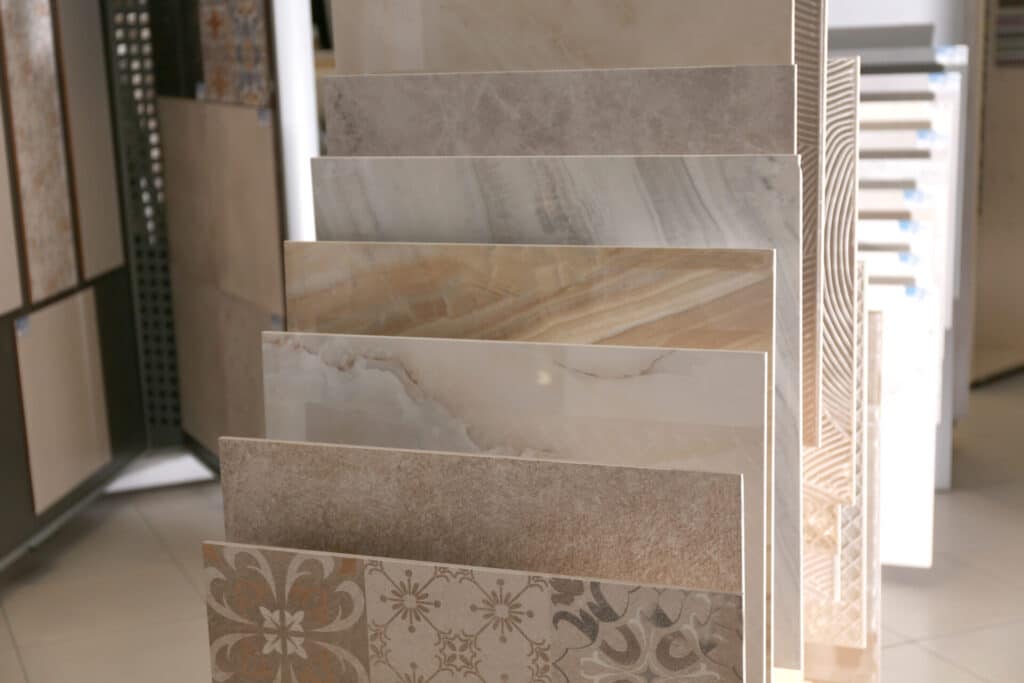
Ceramic tiles are a popular choice for kitchen floors due to their durability and aesthetic appeal. However, it’s important to consider both the pros and cons of using ceramic tiles in your kitchen before making a decision. Here is the list of advantages and disadvantages of ceramic tiles in the kitchen to help you weigh your options and make an educated decision.
Pros of Ceramic Tile in the Kitchen:
1. Durability:
Ceramic tiles are known for their durability, which makes them an excellent choice for high-traffic areas like the kitchen. These types of tiles are resistant to scratches, stains, and moisture, making them suitable for heavy kitchen use.
2. Easy to clean:
Ceramic tiles are relatively easy to clean. You can easily wipe away the spills and stains with the use of a damp cloth or mop, making ceramic tiles a low-maintenance flooring option for the kitchen.
3. Wide range of design options:
Ceramic tiles have a wide range of colors, patterns, and designs that allow you to create a unique and customized look for your kitchen. Whether you prefer a classic design or a more modern and eclectic one, there’s a ceramic tile option out there to suit your style.
4. Resistant to heat:
Ceramic tiles are naturally heat resistant, making them the perfect choice for kitchen floors where hot pots and pans may accidentally be dropped. Unlike some other flooring options, ceramic tiles will not warp or melt under high heat.
5. Hypoallergenic:
Ceramic tiles do not harbor dust mites, allergens, or bacteria, making them a hypoallergenic flooring option for those with allergies or respiratory issues. This is especially important in the kitchen, where food particles and other contaminants can easily accumulate.
6. Cost-effective:
Ceramic tiles are relatively affordable compared to other flooring options, such as stone or hardwood. They offer excellent value for money, considering their toughness and long lifespan.
Cons of Ceramic Tile in the Kitchen:
1. Hardness:
While the durability of ceramic tiles is a pro in terms of longevity, it can also be a con in terms of comfort. Ceramic tiles are hard and unforgiving, which can make standing for long periods uncomfortable. Using gel mats or rugs in high-traffic areas can help alleviate some of this discomfort.
2. Susceptible to cracking:
Although ceramic tiles are generally durable, they are not indestructible. Heavy objects dropped on the tiles can cause cracks or chips. While individual tiles can be replaced, it may be challenging to match the same color and pattern of the existing tiles.
3. Slippery when wet:
Ceramic tiles are slippery when wet, particularly if they have a glossy finish. This can pose a safety concern in the kitchen, where spills and splashes are common. Using non-slip rugs or mats in areas prone to moisture can help mitigate this issue.
4. Cold and noisy:
Ceramic tiles can feel cold underfoot, especially in colder climates. This can be uncomfortable, particularly in the winter months. Additionally, ceramic tiles can contribute to a noisy environment, as they do not absorb sound like carpets or rugs. Adding area rugs or using larger furniture pieces can help absorb some of the noise.
5. Installation and labor costs:
While ceramic tiles themselves are relatively affordable, the installation and labor costs can add up. Proper installation requires precision, and hiring a professional can be costly. Additionally, the grouting between tiles requires regular maintenance to prevent discoloration or cracking.
6. Requires regular cleaning:
While ceramic tiles are relatively easy to clean, the grout between the tiles can be more challenging to maintain. Grout lines can become stained or discolored over time and may require regular cleaning or resealing.
In summary, ceramic tiles offer many advantages as a kitchen flooring option, including durability, easy maintenance, and a wide variety of design options. However, they also have some drawbacks, such as their hardness, susceptibility to cracking, and potential slipperiness when wet. Before making a decision, it is essential to consider these pros and cons to ensure that ceramic tiles are, without a doubt, the right choice for your kitchen.
